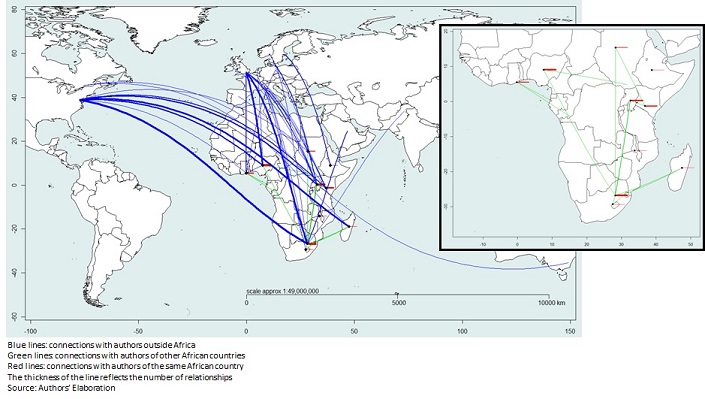Sign up to our newsletter Subscribe
Analysing Global Immunisation Expenditure

Sign up to our newsletter Subscribe


A new study which explores the relationship between sub-Saharan African authors and their respective co-authors has been published in Globalization and Health. The study was a collaboration between OHE, NICE International and PRICELESS. A new study which explores the relationship…

A new study which explores the relationship between sub-Saharan African authors and their respective co-authors has been published in Globalization and Health. The study was a collaboration between OHE, NICE International and PRICELESS.
A new study which explores the relationship between sub-Saharan African authors and their respective co-authors has been published in Globalization and Health.
Collaboration between researchers is important for the generation, transfer and translation of evidence to support health technology assessment (HTA) and decision making processes in healthcare. The objective of this study was to evaluate collaboration patterns between countries.
A rapid evidence assessment was conducted that includes economic evaluations carried out in 20 sub-Saharan countries: Angola, Botswana, Congo, Lesotho, Madagascar, Malawi, Mauritius, Mozambique, Namibia, Seychelles, South Africa, Swaziland, Tanzania, Zambia, Zimbabwe, Ghana, Kenya, Nigeria, Ethiopia and Uganda.
The results suggest that the Southern African authors are collaborating more with researchers from Europe and the US than with those in other African countries. However, there is a high level of collaboration between researchers within the same country (see Figure 1).
Figure 1: Within and between country collaborations

This project is the result of a collaboration between the OHE, NICE International and PRICELESS SA. The study was prepared as part of the International Decision Support Initiative (iDSI), a global initiative to support decision makers in priority-setting for universal health coverage. This work received funding support from the Bill & Melinda Gates Foundation, the Department for International Development (UK), and the Rockefeller Foundation.
Access the full paper here.
An earlier version of this work was presented at the 2016 HTAi conference in Tokyo, May 2016.
For more information contact Karla Hernandez-Villafuerte at OHE.
An error has occurred, please try again later.
This website uses cookies so that we can provide you with the best user experience possible. Cookie information is stored in your browser and performs functions such as recognising you when you return to our website and helping our team to understand which sections of the website you find most interesting and useful.
Strictly Necessary Cookie should be enabled at all times so that we can save your preferences for cookie settings.
If you disable this cookie, we will not be able to save your preferences. This means that every time you visit this website you will need to enable or disable cookies again.
This website uses Google Analytics to collect anonymous information such as the number of visitors to the site, and the most popular pages.
Keeping this cookie enabled helps us to improve our website.
Please enable Strictly Necessary Cookies first so that we can save your preferences!